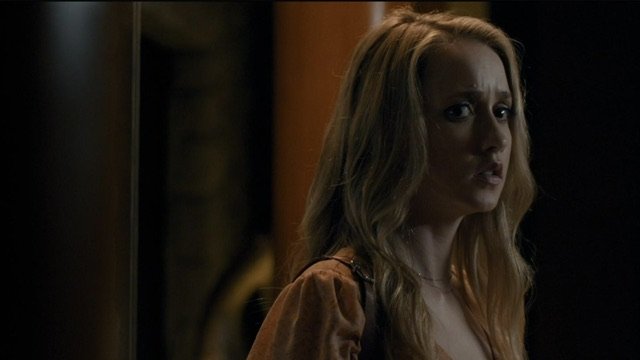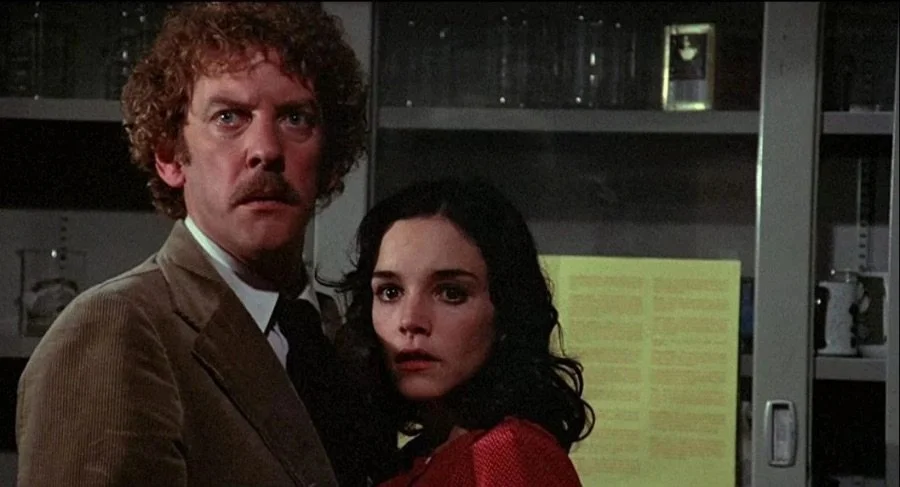Film Review — "Influencer"
“You feel entitled to thinking that people should follow you, which makes you believe that you’re the center of the universe, the star of the story, but no one is.”
“Oh, we are 100% in my story!”
Main character syndrome is funny. The term—which is not a legit DSM diagnosis—may be relatively new, but the “syndrome” itself is not. In essence, it’s when a conceited person presents themself as the protagonist in a fictionalized version of their own (or everybody else’s) life. Although forms of main character syndrome existed long before social media, online platforms have made it easier for narcissists to succumb to it. Outlets like Instagram, for instance, provide a literal lens through which a “main character” can curate their image and flaunt their supposed role in the world. Fundamentally, “main characters” want to be perceived as someone they are not for personal gain, but sometimes, when perception is not enough, they aim to actually become somebody else entirely. Sound ominous? Well, that’s because it kinda is! With Influencer, director Kurtis David Harder externalizes main character syndrome, in a couple of different ways, to put a pop-psych spin on a standard psychological thriller formula.
A sad thing about terminally online people? A lot of them lead lonely lives. Someone may have 68,000+ followers, but hardly a single friend IRL. Take Madison, our eponymous influencer. She doesn’t have friends, not really: She and her boyfriend Ryan are on the cusp of splitting up, and she has a gay confidant named Jay with whom she occasionally video-chats, but Jay’s not as interested in her as much as he is with her “free” lifestyle. And that’s about it. Followers notwithstanding, she’s basically all alone. Whether Madison had true friends prior to her online persona’s rise in popularity is uncertain, but we can infer that in order to maintain her exclusive perks, Madison had to make social sacrifices—or her old friends saw how fake as fuck she was getting and fucked off on their own… So now Madison traverses the globe solo, staying in luxurious villas and sampling high-end products, to feed the timelines of thousands of scrolling people she’ll never meet and who don’t actually care about her.
As Madison, Emily Tennant has perhaps the most deceptively complex performance in the film. Madison is a part that requires the actress to, seemingly unconsciously, occupy two planes of existence at once. It’s easy to overlook the way her discernible melancholy sustains her virtual facade, and vice versa. Deep down, Madison knows the theatre of her life is bullshit, but, with a dash of self-imposed delusion, she continues to upholds the illusion, to keep it together. Where one “Madison” ends and the other begins is sometimes difficult to detect, but, every once in a while, Tennant finds moments to quickly de-tangle then re-tangle Madison’s personae. She does it so deftly that it becomes easy to underestimate what she’s capable of.
While Tennant may deliver the film’s most unassuming performance, Cassandra Naud gets to act the more overtly dynamic role. As CW, she is the character we actively want to follow, whether we trust her or not. From her entrance, it’s obvious that this dark and mysterious woman is in all likelihood up to no good, giving Naud ample opportunities to play on CW’s multiple facets right in front of our eyes. She handles the material so nimbly, too. Seeing CW shift her attitude and tone, depending upon whom she is talking to and what she wants from them, is fun to watch. If Patricia Highsmith’s crusty, hate-filled heart had beat long enough for her to write an adult millennial, such a character probably would’ve behaved a lot like CW, who could honestly be a distant relative of Highsmith’s Tom Ripley.
Influencer may not have quite the elegance of Anthony Minghella’s The Talented Mr. Ripley, but Kurtis David Harder is still an adept filmmaker. Harder makes excellent use of aerial drone shots, utilizing airborne points of view to not only establish the geography and its beauty but also to foreshadow looming doom. One particular instance of “doom” is incredibly well rendered with a clever bit of underwater photography that conjures a frightening abysmal void that really heightens the terror of the scene. This moment is so striking—and it works so well—largely because it’s visually antithetical to the rest of the film, which is set mainly in daylight. In fact, Influencer puts extra emphasis on the sunny backdrop of paradise that surrounds much of the action, allowing it to stand out from its more nighttime-centric counterparts.
Plot-wise, Harder draws inspiration from suspense films like Taking Lives, Single White Female, and The Vanishing, lifting elements from each to weave a psychological thriller for the Instagram generation. Instagram has impacted millennial minds so profoundly that we’re hardly aware of it anymore. The app’s ubiquity and the dubious tastemakers on it are largely responsible for how we organize our books, plate our dishes, spend our weekends, and plan our vacations. It’s crazy how often we allow our attention to be commandeered by faux-celebrities like Madison—callow, conventionally attractive promoters posting sponsored content and positioning themselves as trendsetters everywhere, arousing envy and enmity worldwide. Their pervasiveness has become so normalized that sometimes even the best of us make the mistake of broadcasting our own bad-faith star-making narratives that live or die by audience engagement; usually no one dies for real, though… “Be careful who you follow,” says Influencer’s tagline, but, in a way, “Be careful who you try to be,” would be just as apt.




